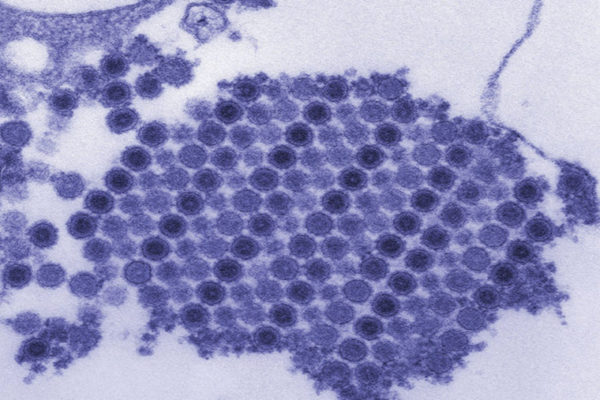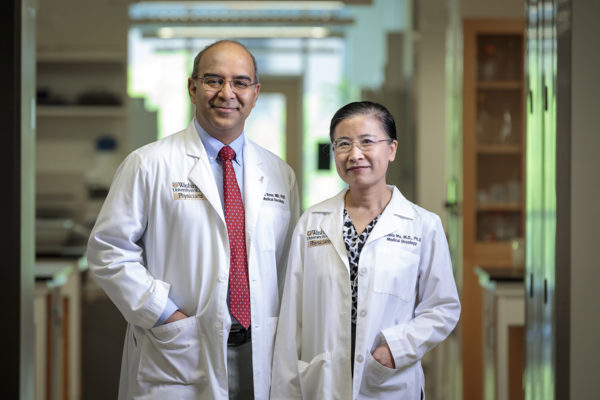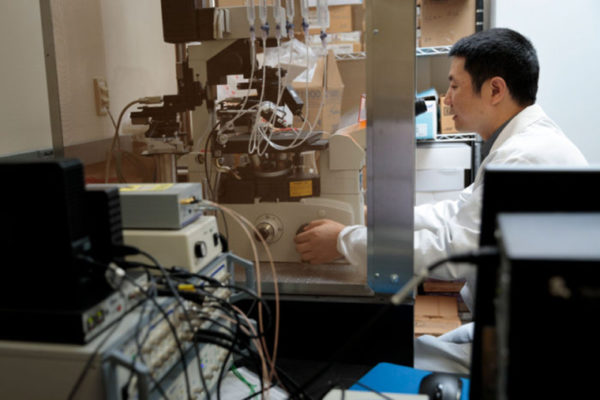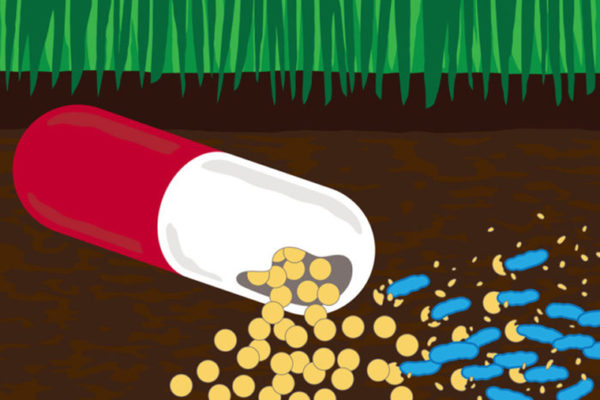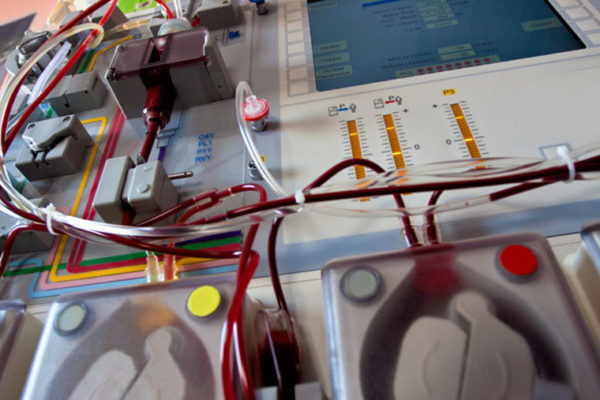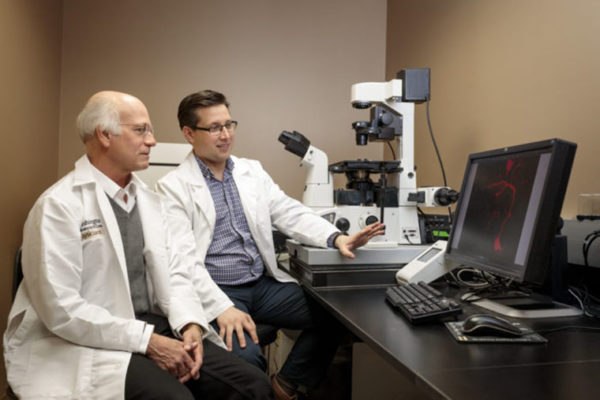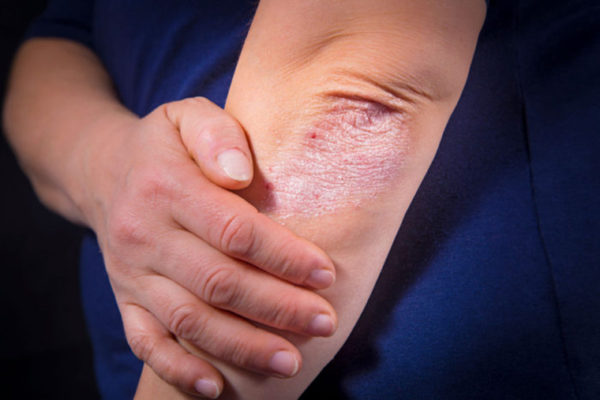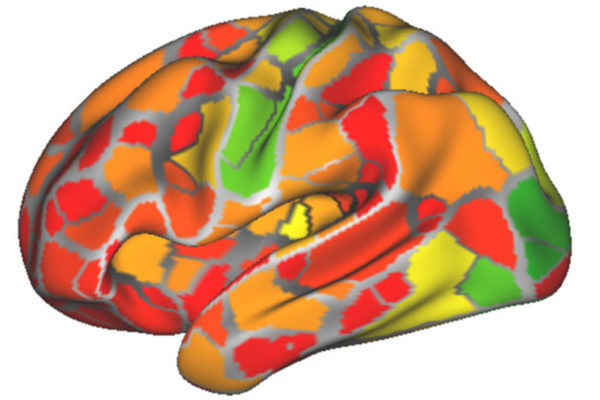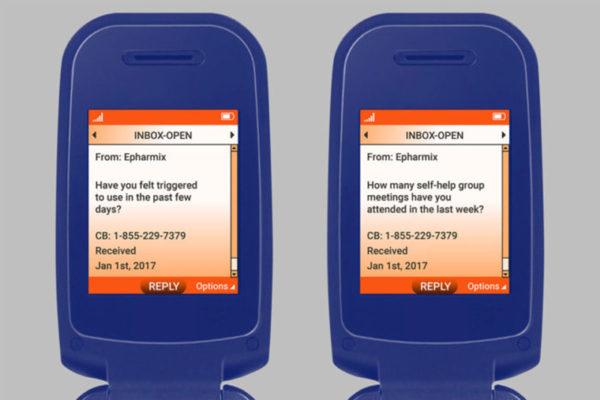Why chikungunya, other arthritis-causing viruses target joints
School of Medicine researchers have identified the molecular handle that the chikungunya virus grabs to get inside cells. The findings could lead to ways to prevent or treat disease caused by chikungunya and related viruses.
$5 million supports innovative breast cancer trial
A $5 million grant will support research at the School of Medicine aimed at improving breast cancer therapies. The research focuses on HER2-positive breast cancer. Ron Bose, MD, PhD, and Cynthia X. Ma, MD, PhD, are leading the effort.
How a light touch can spur severe itching
Researchers at the School of Medicine have discovered, in mice, why a touch can cause such severe itching and, in the process, identified some possible therapeutic targets.
Bacteria’s appetite may be key to cleaning up antibiotic contamination
Antibiotics in the environment contribute to drug resistance. But researchers at the School of Medicine have figured out how some soil bacteria turn the drugs into food. The information could lead to new ways to clean up antibiotic-contaminated soil and waterways.
Rates of autism continue to rise, new data indicate
New statistics show rates of autism have continued to increase. However, they have increased only modestly, suggesting there may be a leveling off. Still, researchers found that many children aren’t getting diagnosed until age 4 or older. The new findings stem from research involving the 11-center Autism and Developmental Disabilities Monitoring Network, which includes Washington University School of Medicine in St. Louis.
Experimental arthritis drug prevents stem cell transplant complication
An investigational drug in clinical trials for rheumatoid arthritis prevents a common, life-threatening side effect of stem cell transplants, finds new School of Medicine research. Studying mice, the researchers found the drug prevented what’s known as graft-versus-host disease.
Defect in debilitating neurodegenerative disease reversed in mouse nerves
Scientists from the School of Medicine have developed a new drug compound that shows promise as a future treatment for Charcot-Marie-Tooth disease, an inherited, often painful neurodegenerative condition that affects nerves in the hands, arms, feet and legs.
Psoriasis treated with compound derived from immune cells
A compound derived from immune cells treats psoriasis in mice and holds promise for other autoimmune diseases, according to a new study from the School of Medicine.
Brain scans may help diagnose neurological, psychiatric disorders
A new School of Medicine study shows that a kind of brain scan called functional connectivity MRI (fcMRI) – which shows how brain regions interact – can reliably detect fundamental differences in how individual brains are wired.
Text messaging tool may help fight opioid epidemic
A new automated text messaging service may curb opioid abuse and reduce the likelihood of relapse while also decreasing treatment costs, according to researchers at Washington University School of Medicine and Epharmix, a St. Louis-based digital health company.
View More Stories
